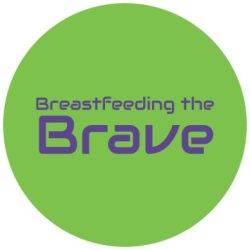
Medically complex babies and children experience many of the same challenges as healthy newborns or preterm/sick neonates, such as difficulty establishing feeding, optimizing milk supply, and positioning and attachment. However, they also experience additional challenges – such as:
- low tone,
- higher caloric need,
- pain,
- nausea,
- boredom and isolation,
- metabolic changes,
- developmental differences,
- problems breastfeeding with lines, drains, splints, casts, and devices,
- difficulty returning to breastfeeding after intubation or enteral (tube) feeding
Mothers also frequently experience different breastfeeding challenges to those commonly seen with newborn babies. They also often have to deal with those challenges without access to trained staff or usual sources of more established community support if they are resident with their child on the ward.
It is hard to breastfeed in the face of any critical illness, but for parents of preterm babies, the establishment of milk supply occurs in the relatively supportive and accepting environment of the neonatal unit. It is a different scenario entirely to maintain milk supply after the profound shock of a child becoming very unwell, even if the mother/parent had an established milk supply prior to their child’s illness.
There are several problems:
- Infants and children also have additional challenges unique to their medical condition
- Parents may experience challenges that are developmentally related – and be outside the range of experience of professionals who are mostly trained to support the establishment of breastfeeding in the newborn period
- There is almost no research in this population, leaving people to try to apply what works in a very different population – with varying success
- What research does exist, tends to focus on very specific diseases and conditions, such as congenital heart defect, cleft lip and palate, and Down syndrome. Much less is known about how acute or chronic illnesses affect breastfeeding generally
- Parents are trying to get to grips with all these challenges in an environment where breastfeeding may not be valued in the same way, and where staff may not have the skills and training to be able to support them, leaving them vulnerable to inaccurate or inappropriate advice.
